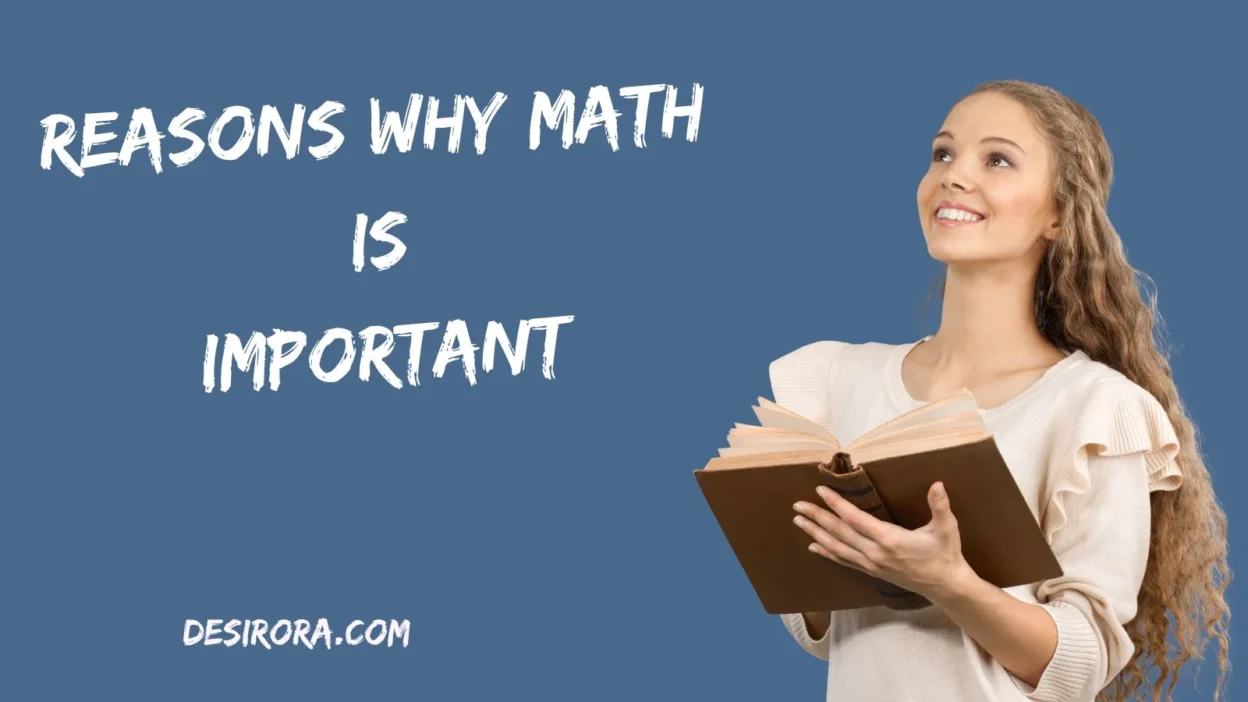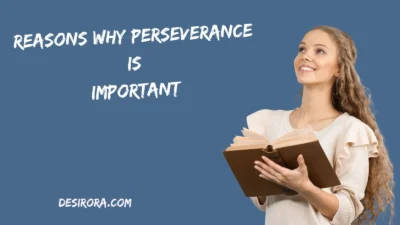Mathematics often gets a bad rap. You hear groans, excuses, and avoidance. But behind the formulas and theorems lies something powerful: math is a language—a tool to understand the world, make better choices, and solve real problems.
In this article, we’ll explore compelling reasons why math is important in everyday life, careers, personal growth, and beyond. You’ll see concrete examples, lists, even a synonym table and grammar notes along the way.
Let’s dive in.
The Role of Math in Everyday Life
We use math more often than we realize. From the moment you step into the kitchen to when you pick your route home, math quietly guides decisions.
Simple Examples in Daily Activities
- Cooking and baking. You measure ingredients, convert units (teaspoons to tablespoons), adjust proportions for more servings.
- Shopping and discounts. A 25% off sale? You instinctively calculate the discount (or you should).
- Time management. Scheduling tasks, estimating how long something will take (e.g. 30 minutes to write an email).
- Home DIY and measurements. Cutting wood, painting walls—calculations of area, length, volume matter.
- Travel and navigation. You read maps, determine distances, estimate fuel use or travel time.
Each of these is a real-life usage of math. When people say, “I’ll never use algebra again,” they overlook how much they already do.
Math Builds Critical Thinking and Problem-Solving Skills
One core reason why math is important is that it trains your brain to think logically and solve complex problems. You learn to break problems into parts, test hypotheses, and check your work.
Types of Thinking Skills Math Develops
| Skill | What It Means | Example |
| Analytical reasoning | Dissecting a problem into components | Breaking a budget into categories |
| Pattern recognition | Seeing trends or repeated structures | Identifying sequences in data |
| Abstract thinking | Working with non-concrete objects | Algebraic variables, functions |
| Deductive reasoning | Starting from general rules to reach conclusions | “All squares are rectangles; this is a square, so …” |
These thinking skills transfer to many domains—writing, science, legal reasoning, everyday problem solving.
A Quote to Remember
“Pure mathematics is, in its way, the poetry of logical ideas.”
— Albert Einstein
Einstein saw math not as dry or utilitarian, but as deeply beautiful and foundational to thought.
Math in Careers and Professional Fields
Many professions demand strong math skills—sometimes more than people expect.
Careers that Rely on Math
- Engineering (civil, mechanical, electrical)
- Data science and analytics
- Computer science, programming
- Physics, chemistry, biology
- Architecture and design
- Finance, accounting, economics
- Medicine (e.g. dosage calculation, imaging)
- Actuarial science and insurance
In a data-driven world, almost every sector now values quantitative and analytical skills. Even marketing uses metrics, A/B testing, and analytics.
Example: Data Analyst
A data analyst might:
- Clean data (handle missing values, normalize).
- Run statistical tests (mean, standard deviation, correlation).
- Build models to predict trends.
- Interpret results, communicate confidently.
All this depends on mathematical thinking and knowledge of statistics, probabilities, linear algebra, etc.
If you aim for future-proof careers, math becomes a valuable asset.
Math as a Foundation for Science, Technology, and Innovation
When you look at major breakthroughs—space travel, artificial intelligence, internet security—math is the backbone.
Science and Math: Interwoven
Physics uses differential equations. Chemistry uses stoichiometry and probabilities. Biology models growth via calculus or statistics. Without math, there’s no rigorous scientific understanding.
Technology and Algorithms
- Encryption and cryptography rely on number theory, modular arithmetic.
- Machine learning uses linear algebra, calculus, optimization.
- Computer graphics rely on geometry and transformations.
- Robotics, GPS, signal processing—all deeply mathematical.
If you enjoy innovation, math gives you the language and tools to build that future.
Math and Financial Literacy
Understanding money is essential. Math helps you in budgeting, investing, and making informed financial decisions.
Key Concepts You Use
- Interest rates (simple and compound)
- Percentages and growth rates
- Loan amortization, mortgages
- Risk assessment and probability
- Return on investment, net present value
Without these, you risk falling prey to bad financial deals or misunderstandings. When people say “I’ll never use algebra,” the truth is they may already be doing it—just without realizing.
Math, Logic, and Decision-Making
Math fosters precise thinking, so your decisions become clearer, less fuzzy.
- You can weigh trade-offs (e.g. cost vs benefit).
- You can model scenarios (if I spend extra, what’s my breakeven?).
- You can guard against biases—seeing if a “gut feeling” holds up mathematically.
Math helps you avoid being swayed by fancy numbers if there is no substance. You learn to ask: Where is the evidence? Does this make sense?
Math Helps Develop Perseverance and Growth Mindset
Learning math is rarely instant. You struggle, make mistakes, and learn to persist.
Why This Matters
- You build resilience—you try again, refine your approach.
- You cultivate patience and discipline.
- You learn to handle failure, debug errors, revise steps.
These qualities matter far beyond math—whether you’re building a product, learning a language, or leading a team.
A friend once told me: “I kept messing up that calculus problem for hours. But when I got it, it felt like climbing a mountain.” That effort builds confidence.
Overcoming Math Anxiety: Tips and Real-Life Usage
Many people fear math. That fear itself becomes a barrier. But you can overcome it with strategies and real-life anchors.
Tips to Overcome Math Anxiety
- Start small. Tackle easier problems, build confidence.
- Ask questions. Clarify each step.
- Use visuals. Diagrams, graphs, physical models.
- Relate to interests. If you like sports, analyze player stats.
- Practice regularly. Consistency beats cramming.
- Group work. Explaining to others helps you understand.
- Mistakes are learning gifts. Analyze your errors, see patterns.
Real-Life Use Case
Suppose you’re downsizing expenses. You collect all your monthly costs—rent, food, transport—and plot them in a pie chart. You see food is 35 %, transport 20 %, etc. You decide to cut back on the 35 % slice by 5 %. That insight comes from basic ratio and percentage math.
By applying math even in small domestic decisions, you reduce the “abstractness” and build comfort.
Common Misconceptions and How to Address Them
Sometimes people dismiss math for the wrong reasons. Let’s tackle those:
| Misconception | Reality / Correction |
| “I’m just not a math person.” | Everyone can improve with practice. It’s not innate talent alone. |
| “I’ll never use algebra in real life.” | Algebra underpins many real tasks—scaling, formulas, structure. |
| “Math is boring.” | It can be deeply creative—patterns, puzzles, structures. |
| “I make too many mistakes.” | Mistakes are part of the process. The difference is you learn from them. |
Grammar Note: “Than” vs “Then”
- Use than in comparisons: “Better than nothing.”
- Use then to indicate time or sequence: “First do A, then do B.”
Often when discussing math vs non-math people, you’ll see misuses like “better then nothing”—wrong. This little grammar tip helps clarity.
Synonym Table for “Important”
| Word | Nuance / Use Case |
| Crucial | implying high necessity |
| Essential | fundamental, cannot omit |
| Vital | life or core sustaining |
| Significant | meaningful, impactful |
| Indispensable | absolutely cannot do without |
You can write “math is vital” or “math is essential” and still optimize for your keyword, while varying your phrasing.
Bringing It All Together: How to Cultivate a Math Mindset
To truly benefit from math, you need a mindset shift. Here’s a roadmap:
- Embrace challenges instead of avoiding them.
- Learn to see math not as rigid formulas, but as a language.
- Practice in real contexts—budgeting, cooking, planning.
- Seek patterns and ask “why” rather than just “how.”
- Teach others or explain aloud—teaching is learning.
- Use apps or puzzles (e.g. Sudoku, logic games) to make practice fun.
If you do this, not only will you strengthen your mathematical skill, but you’ll also sharpen your reasoning, confidence, and ability to tackle uncertainty.
FAQs
What are the main benefits of learning math?
You gain stronger problem-solving ability, critical thinking, logical reasoning, better career opportunities, improved financial literacy, and resilience in facing challenges.
Is math only for scientists and engineers?
Not at all. Math is everywhere: in business, finance, medicine, art, architecture, economics, and daily life. You don’t have to become a scientist to use it.
How can I make math more engaging and less intimidating?
Use real-life examples, apply it to your interests, start with small problems, use visuals, work with peers, and celebrate small wins.
Can someone improve at math even if they feel “bad at math”?
Absolutely. With consistent practice, feedback, and positive attitude, people at all levels can improve. The idea that some are “just bad at math” is a myth.
Is memorizing formulas enough to do well in math?
No. Understanding why a formula works, when to apply it, and how it’s derived is far more powerful than memorization alone. Context, logic, and application matter.
Conclusion
Math is more than just schoolwork or a requirement. It’s a tool for thinking, a bridge to innovation, and a language that underlies much of what we do. Whether you’re budgeting your finances, choosing a career, or simply trying to understand the world, math has a place.
By engaging with math—step by step, with curiosity and persistence—you unlock abilities that reach far beyond numbers. The next time someone says “I’ll never use math,” you’ll know better—and so will you.

Thomas Hardy is a passionate innovator and thoughtful leader, dedicated to transforming ideas into lasting success. With creativity and purpose, he brings vision and authenticity to everything he does.



